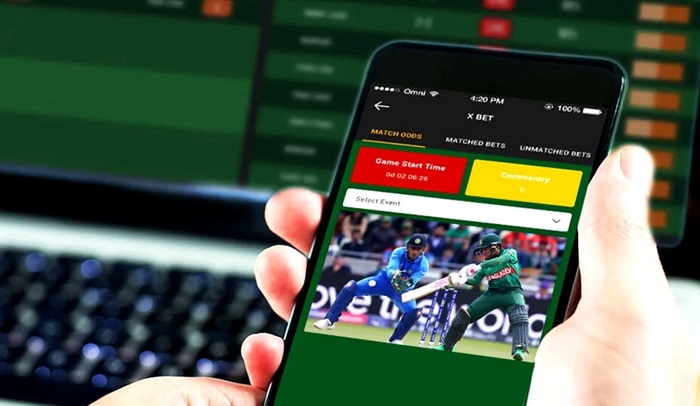Building a sports betting platform? Your data API is where everything starts. Make the wrong choice, and lagging updates and frustrated users will follow for months. Make the right choice, and your platform falls into place.
The market is packed with sports betting API providers. Some do live odds, others focus on historical data or player stats, and a few offer automated betting. Know your platform’s priorities first, or evaluating options will be wasted effort.
Understanding Sports Betting APIs
Sports betting APIs connect data sources to your platform. They push odds, schedules, scores, and player statistics. A good API handles live updates across multiple sports while managing heavy traffic.
These APIs are nothing alike, though. Features differ, sports coverage differs, speed differs, and prices really differ. Know what you need first. Seriously, write it down. You’ll thank yourself later when you’re not drowning in sales calls from providers offering things you don’t even need.
Key Features to Look for in a Sports Betting API Provider
Coverage of Sports and Markets
APIs don’t all cover the same sports. Some stick to football and basketball because that’s where the money is. Others span dozens of sports globally. Planning to offer diverse betting? Make sure your provider actually supports that range.
Ask specifically, don’t just assume. I’ve seen platforms launch thinking they’d have tennis coverage, only to find out the API only does Grand Slams. That’s a problem when users want to bet on ATP 250 tournaments.
Data Accuracy and Reliability
Bad odds or slow updates will wreck your platform. Users catch these problems instantly and leave. They’re not forgiving about this stuff. One poor experience can cost users. Test sample feeds, read reviews, and ask about uptime assurances.
Good providers share their performance metrics openly because they’re confident in their data. If someone is dodging questions about uptime, that tells you everything.
Speed and Real-Time Updates
Speed isn’t negotiable in sports betting. In fast-paced sports, odds shift every second. Your API must provide real-time updates, even during heavy traffic. Think about the Super Bowl or a World Cup final, when millions of users are betting simultaneously.
Your API needs to handle that without choking. Test this during your trial period. Push it hard, and see what happens when you simulate a heavy load.
Ease of Integration
Amazing features mean nothing if integration takes forever. You want clear documentation, sensible endpoints, and sample code that actually works. Some providers throw in SDKs to make life easier. Get your developers to check the documentation early. If it confuses them right away, that’s your answer.
I’ve watched dev teams waste three weeks trying to integrate an API with terrible documentation. Three weeks they could’ve spent building features users actually want. Documentation quality matters way more than most people think.
Customization and Flexibility
Every platform needs something different. Maybe you want particular data filters or niche markets. Go with a provider offering flexible endpoints and custom options. You’ll build exactly what you want without needing to switch providers down the road.
Switching providers later is brutal. You’re essentially rebuilding parts of your platform. Users might notice disruptions. Your team is stressed, and it’s expensive. Better to choose flexibility from the start.
Historical Data Access
Live data gets attention, but historical data has value. Serious bettors dig through trends and past performance before placing bets. Targeting analytical users? You need solid historical data. Not every provider has it, and quality varies a lot.
Pricing and Scalability
Pricing models are everywhere. Per-request fees, monthly subscriptions, combinations of both. Think about your expected users and data usage. Do the math. Really do it. I’ve seen startups get blindsided by API costs they didn’t properly calculate.
Here’s what really matters, though: scalability. Costs need to stay reasonable as you grow. Find someone who scales with you instead of hitting you with surprise bills later. Read the fine print. Ask what happens when you 10x your usage. Get specific numbers.
Evaluating API Providers
Make a checklist. Does the provider have your sports and markets? How often do they update? What’s the latency like? Got uptime guarantees? Is the documentation clear? Does pricing work for your budget and growth plans?
Get a trial, test it yourself, check the speed, and verify accuracy against other sources. Watch how your developers react to working with it. Real experience tells you everything. Sales demos are polished. Reality is different.
The Role of Support and Community
Problems happen. You need support that responds fast. Look for multiple contact options: email, chat, phone. Some providers run developer communities where people help each other troubleshoot and swap tips. Those communities are worth their weight in gold.
Ask about response times. Some companies say they offer support but take 48 hours to reply. That’s useless when your platform is down at 2 am on a Saturday during peak betting hours.
Security and Compliance
You’re dealing with real money and personal info. Security can’t be an afterthought. Your provider needs encrypted transfers, secure authentication, all of it.
Then there’s compliance. Betting laws change by region and get stricter. Make sure your provider meets regulations everywhere you operate. This isn’t optional. Getting this wrong means legal trouble, fines, or worse. Ask for documentation proving their compliance.
Making the Final Decision
Evaluate your leading choices based on speed, data accuracy, market coverage, customer support, and cost. Test them, consult their technical teams, and dig deep with questions. Switching later is a nightmare and costs a fortune. Do this right the first time.
Sleep on it. Seriously. Don’t sign contracts the same day you finish trials. Give yourself time to think through everything. Discuss with your team. Make sure everyone’s comfortable with the choice.
Conclusion
Your API provider matters more than almost anything else. Pick right, and you get fast, reliable odds that help you grow. Pick wrong, and technical problems never stop.
Focus on what counts: coverage, speed, reliability, easy integration, and reasonable costs. Test hard. Choose someone who fits now and grows with you later. The right partner builds your foundation instead of becoming your constant headache. Take your time with this decision. It’s that important.









Leave a Reply
View Comments